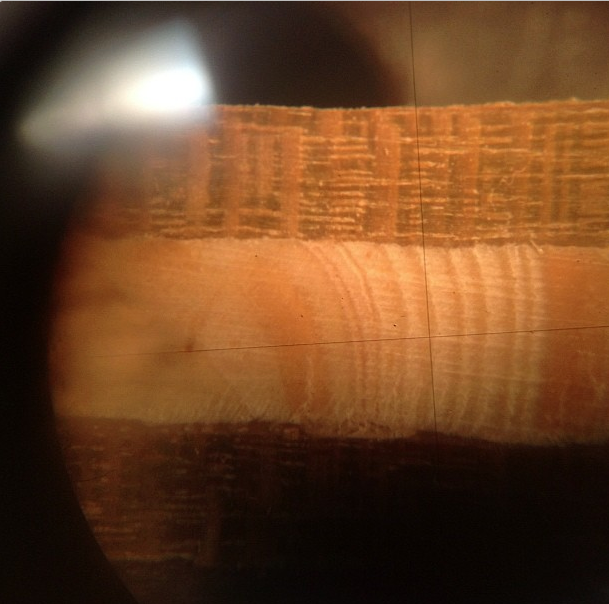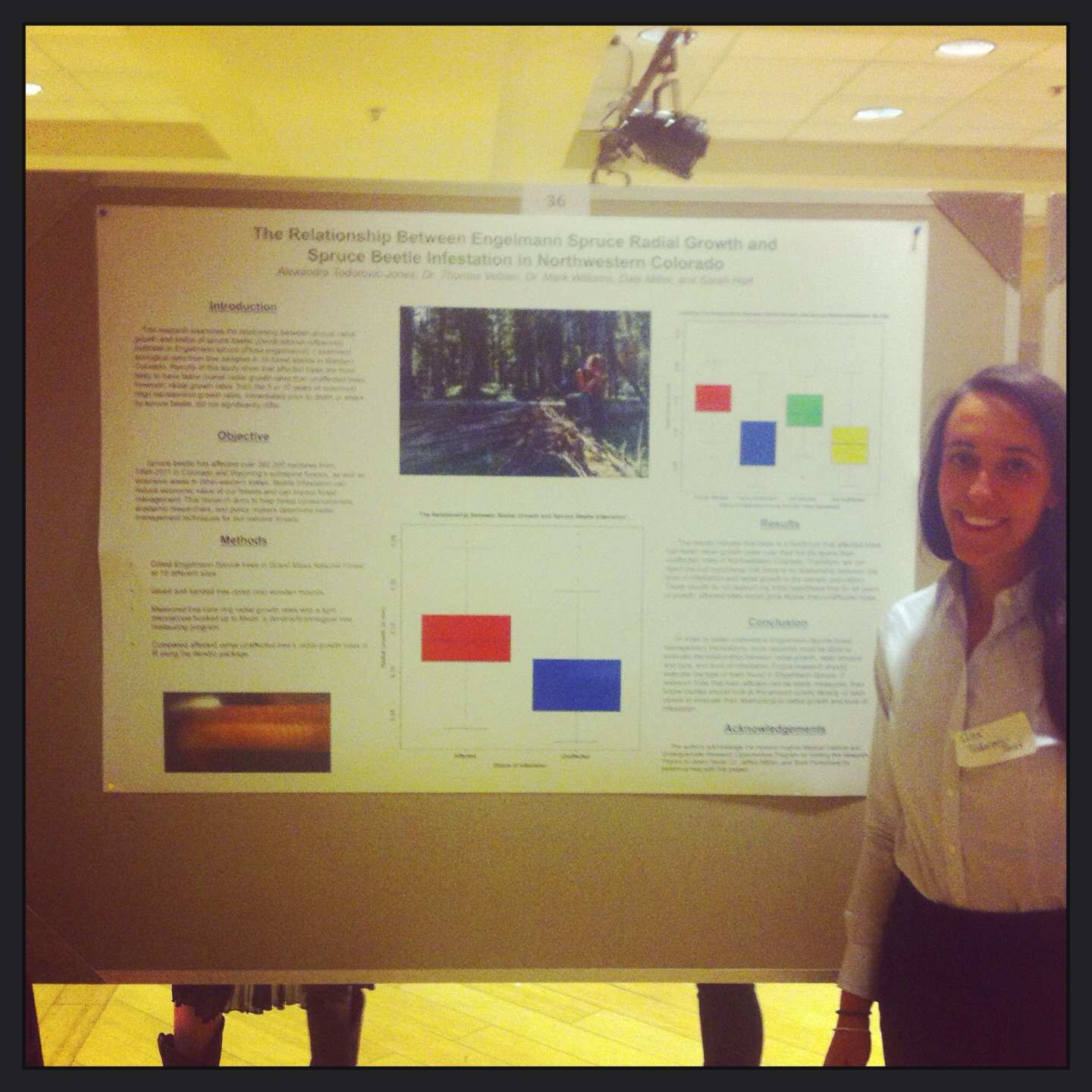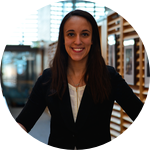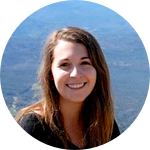About This Project
We are researching the tolerance of two tree species to climatic changes, by examining leaf and tree ring properties. Our goal is to see how changes in temperature and precipitation are affecting oak species in Spain and India. This study is important for understanding how these critical species and ecosystems are being affected by a changing climate.
Ask the Scientists
Join The DiscussionWhat is the context of this research?
Climate change has a global impact, however not all regions will be affected equally. Spain and Mediterranean-type regions, which harbor 20% of global plant diversity (Cowling et al. 1996), will experience increased temperatures and decreased precipitation, making the climate even more prone to drought.
In India, a country home to ⅙ of the world's population is also one of the countries that is most vulnerable to climate change. According to the Intergovernmental Panel on Climate Change, India will experience more erratic and less predictable weather events.
Our parallel studies in these two regions will examine the tolerance of two oak species, the cork oak in Spain (Quercus suber L.) and the banj oak in India (Quercus leucotrichophora A. Camus), to historic and recent climate variability.
What is the significance of this project?
Oaks are found on five continents and support ecosystem health and community livelihood. Together cork oak and banj oak are found in over 15 countries. The cork oak supports a unique and biodiverse ecosystem and the bark is harvested for production, such that thousands of farmers rely on cork harvesting for their income. Similarly, the banj oak supports the surrounding ecosystem, by regulating water quality and preventing soil erosion, while also providing ecosystem services such as fuel and fodder to rural Indian communities. Studying how oaks are and have been responding to climatic extremes is therefore important for understanding how these diverse and unique ecosystems will be affected by climate change in the future.
What are the goals of the project?
With funding from pledgers from experiment.com, we will:
1. Collect leaves and tree core samples at our site locations in Spain and India
2. Analyze the morphology and anatomy of the samples to climate data
3. Update the backers on our progress throughout all stages of the process
4. Submit our findings to peer-reviewed journals for publication
5. Give local managers access to our findings
Budget
Alex's items:
The air travel and visa for India will get Alex to her field sites to collect her data. With the help of the GPS, Alex will be able to navigate to her field plots once she is in India. The camera with a macro lens and microscope attachment will be used to take pictures of leaves to evaluate leaf area as well as stomata density and size while in the field.
Kyra's items:
Airfare is needed to get Kyra to her field sites and to the laboratory where she will conduct her analyses. The pruning pole is essential to be able to get leaf samples from the upmost branches. The camera will be used for measuring leaf area in the field, and the increment borer will be used for taking tree cores. The final part of the budget will go to isotope analyses to determine the carbon composition of the leaves.
If you donate...you get...
- $5: Access to our blog
- $25: Monthly email updates
- $100: Handwritten postcard
- $500: Skype update and photos from the field
- $750: Acknowledgement in publications
Donations will be processed by Silicon Valley Community Foundation, a 501(c)(3) public charity registered in the state of California. Your gift is tax-deductible to the fullest extent of the law.
Meet the Team
Team Bio
Alex Todorovic-Jones:
Growing up in Cambridge, Massachusetts, I spent all of my time outdoors, either rowing on or running around the Charles River. My love for the outdoors led me to study environmental studies at Duke University and University of Colorado at Boulder. While completing my BA, I researched spruce beetle outbreak and forest ecology in Colorado, interned at the Nature Conservancy, and photographed the Rocky Mountain Bioblitz for National Geographic. Now, I am a Master of Forest Science candidate and a member of the Ashton lab at Yale University. My goal is to become a professor, studying forest and disturbance ecology, while encouraging more women to pursue STEM fields.
Kyra Prats:
I grew up near Concord, Massachusetts, and soon developed a fascination with nature, which led me to pursue research in ecology and the environment. Previously I have worked on wide variety of research projects that have had me studying epiphytes in a Costa Rican cloud forest, using remote sensing to observe wetland ecohydrology, and examining the impacts of drought on forests in the Pyrenees of Spain. I am a Master of Forest Science candidate at Yale University, and previously earned a BS in Environmental Geoscience from Boston College.
Alex Todorovic-Jones
Growing up in Cambridge, Massachusetts, I spent all of my time outdoors, either rowing on or running around the Charles River. My love for the outdoors led me to study environmental studies at Duke University and University of Colorado at Boulder. While completing my BA, I researched spruce beetle outbreak and forest ecology in Colorado, interned at the Nature Conservancy, and photographed the Rocky Mountain Bioblitz for National Geographic. Now, I am a Master of Forest Science candidate and a member of the Ashton lab at Yale University. My goal is to become a professor, studying forest and disturbance ecology, while encouraging more women to pursue STEM fields.
Kyra Prats
I grew up near Concord, Massachusetts, and soon developed a fascination with nature, which led me to pursue research in ecology and the environment. Previously I have worked on wide variety of research projects that have had me studying epiphytes in a Costa Rican cloud forest, using remote sensing to observe wetland ecohydrology, and examining the impacts of drought on forests in the Pyrenees of Spain. I am a Master's of Forest Science candidate at Yale University, and previously earned a BS in Environmental Geoscience from Boston College.
Additional Information

A view of a tree core and its growth rings underneath the microscope

Alex presenting results from her senior Howard Hughes Medical Institute Biosciences Research Grant Conference
 Kyra presenting results from her senior thesis at the Northeast Geological Society of America meeting (March 2013)
Kyra presenting results from her senior thesis at the Northeast Geological Society of America meeting (March 2013)
 Alex and Kyra at the People's Climate March in NYC (Sept 2014)
Alex and Kyra at the People's Climate March in NYC (Sept 2014)
Project Backers
- 56Backers
- 132%Funded
- $6,630Total Donations
- $118.39Average Donation

